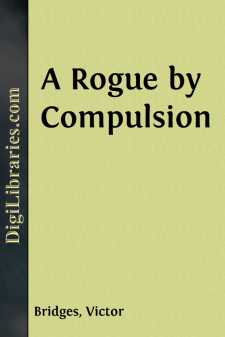Categories
- Antiques & Collectibles 13
- Architecture 36
- Art 48
- Bibles 22
- Biography & Autobiography 815
- Body, Mind & Spirit 144
- Business & Economics 28
- Children's Books 18
- Children's Fiction 14
- Computers 4
- Cooking 94
- Crafts & Hobbies 4
- Drama 346
- Education 58
- Family & Relationships 59
- Fiction 11835
- Games 19
- Gardening 17
- Health & Fitness 34
- History 1378
- House & Home 1
- Humor 147
- Juvenile Fiction 1873
- Juvenile Nonfiction 202
- Language Arts & Disciplines 89
- Law 16
- Literary Collections 686
- Literary Criticism 179
- Mathematics 13
- Medical 41
- Music 40
- Nature 180
- Non-Classifiable 1768
- Performing Arts 7
- Periodicals 1453
- Philosophy 65
- Photography 2
- Poetry 896
- Political Science 203
- Psychology 44
- Reference 154
- Religion 515
- Science 126
- Self-Help 85
- Social Science 83
- Sports & Recreation 34
- Study Aids 3
- Technology & Engineering 60
- Transportation 23
- Travel 463
- True Crime 29
Our website is made possible by displaying online advertisements to our visitors.
Please consider supporting us by disabling your ad blocker.
The Secrets of the German War Office
Description:
Excerpt
Chapter I. How I Became a Secret Agent
"O Jerum, jerum, jerum, quâ motatio rerum."
Half past three was heard booming from some clock tower on the twelfth day of June, 1913, when Mr. King, the Liberal representative from Somerset, was given the floor in the House of Commons. Mr. King proceeded to make a sensation.
He demanded that McKinnon Wood, the House Secretary for Scotland, reveal to the House the secrets of the strange case of Armgaard Karl Graves, German spy.
A brief word of explanation may be necessary. Supposed to be serving a political sentence in a Scotch prison, I had amazed the English press and people by publicly announcing my presence in New York City.
Mr. King asked if I was still undergoing imprisonment for espionage; if not, when and why I was released and whether I had been or would be deported at the end of my term of imprisonment as an undesirable alien.
Permit me to quote verbatim from the Edinburgh Scotsman of June 12, 1913:
The Secretary for Scotland replied—Graves was released in December last. It would not be in accordance with precedent to state reasons for the exercise of the prerogative. I have no official knowledge of his nationality. The sentence did not include any recommendation in favor of deportation.
Mr. King—Was he released because of the state of his health?
The Secretary for Scotland—I believe he was in bad health, but I cannot give any other answer.
Mr. King—Were any conditions imposed at the time of his release?
The Secretary for Scotland—I think I have dealt with that in my answer. (Cries of "No.")
Mr. King—Can the right hon. gentleman be a little more explicit? (Laughter.) We are anxious to have the truth. Unless the right hon. gentleman can give me an explicit answer as to whether any conditions were imposed I will put down the question again. (Laughter.)
The Speaker intervened at this stage, and the subject dropped.
Heckling began at this point; word was quickly sent to the Speaker, and he intervened, ruling the subject closed.
Now consider the Secretary for Scotland's statement. "It would not be in accordance with precedent to state reasons for the exercise of prerogative." In other words, high officials in Enghand had found it advisable secretly to release me from Barlinney Prison by using the royal prerogative. Why? Later you will know.
Also, consider the Secretary for Scotland's statement that he had no official knowledge as to my nationality—significant that, as you will realize.
There are three things which do not concern the reader: My origin, nationality and morals. There are three persons alive who know who I am. One of the three is the greatest ruler in the world. None of the three, for reasons of his own, is likely to reveal my identity.
I detest sensationalism and wish it clearly understood that this is no studied attempt to create mystery. There is a certain dead line which no one can cross with impunity and none but a fool would attempt to. Powerful governments have found it advisable to keep silence regarding my antecedents....












